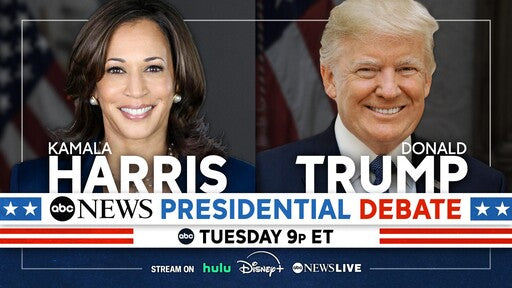In today's media landscape, the line between honest journalism and political favoritism seems increasingly blurred. The recent debate between Donald Trump and Kamala Harris would be no exception to this trend. While political debates are meant to be platforms for presenting ideas, discussing policies, and engaging in civil discourse, they often end up revealing the deep-rooted bias in how candidates are treated and how facts are handled. This bias not only weakens trust in the media but also raises concerns about transparency and fairness in political dialogue.
Fact-Checking: A Tool for Transparency or a Weapon of Bias?
In theory, fact-checking is a crucial aspect of public debate. It helps ensure that candidates' statements are accurate, holding them accountable for the information they present to voters. However, the application of fact-checking has become alarmingly selective, where only the party or candidate deemed unfavorable by certain media outlets or commentators is scrutinized. This disparity was particularly evident in past debates, and it continues to cast a shadow on any future hypothetical Trump-Kamala matchup.
During debates involving Donald Trump, the media's focus often centers on constant fact-checking of his statements. While accountability is important, the intensity and frequency with which Trump’s comments are picked apart compared to his opponents' have raised eyebrows. On the other hand, Kamala Harris, like many favored by media elites, receives far less scrutiny. Statements she makes that may warrant a fact-check are often ignored, excused, or framed in a way that softens their impact. This selective focus isn't just about overlooking errors but about pushing an agenda.
Selective Outrage and Media's Role
The media’s selective fact-checking is not just about accuracy; it's about controlling the narrative. When one candidate is endlessly fact-checked while the other gets a pass, it creates an illusion of credibility and trustworthiness on one side while casting doubt on the other. This lack of transparency, fueled by bias, manipulates the audience into believing that only one side is honest or competent.
In a debate between Trump and Kamala Harris, for example, viewers would likely see a familiar pattern: Trump's comments rigorously fact-checked in real-time, with headlines the next day dissecting every statement. Meanwhile, Harris's remarks would be taken largely at face value, giving the impression that her policies and statements are beyond reproach. This not only distorts the debate itself but also deprives voters of the chance to hear a balanced, honest discussion of ideas.
The Danger of Media-Driven Narratives
This kind of selective fact-checking plays into a larger issue: the creation of media-driven narratives that favor certain candidates over others. When the media consistently shields one side from criticism while relentlessly attacking the other, it becomes clear that the goal is not fairness or truth but agenda-driven reporting.
For voters, this means being fed a skewed version of reality. Instead of being presented with facts and letting them decide for themselves, they are influenced by a carefully curated narrative designed to shape public opinion. This kind of media manipulation not only undermines democratic debate but also erodes trust in journalism as a whole.
The Path Forward: Demand Fairness and Transparency
As Americans, we deserve better. Political debates, whether between Trump and Harris or any other candidates, should be judged based on the merits of their arguments, not by selective fact-checking or media bias. Voters should demand transparency and fairness, ensuring that both sides are held to the same standard of honesty and accountability.
The ongoing lack of balance in the media’s handling of debates and fact-checking serves no one but the media elite. It's time to call out this bias and ensure that political discourse returns to a place of fairness, truth, and real debate. After all, democracy thrives when voters are given the full picture, not a narrative carefully shaped to fit one side’s agenda.

